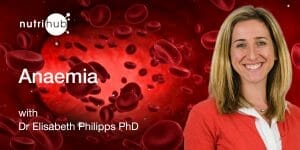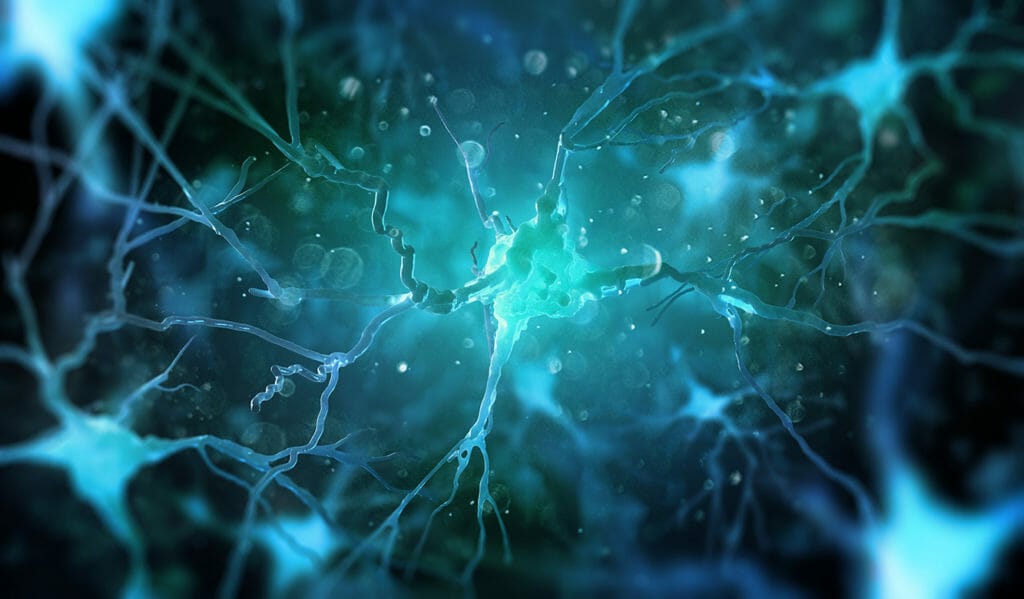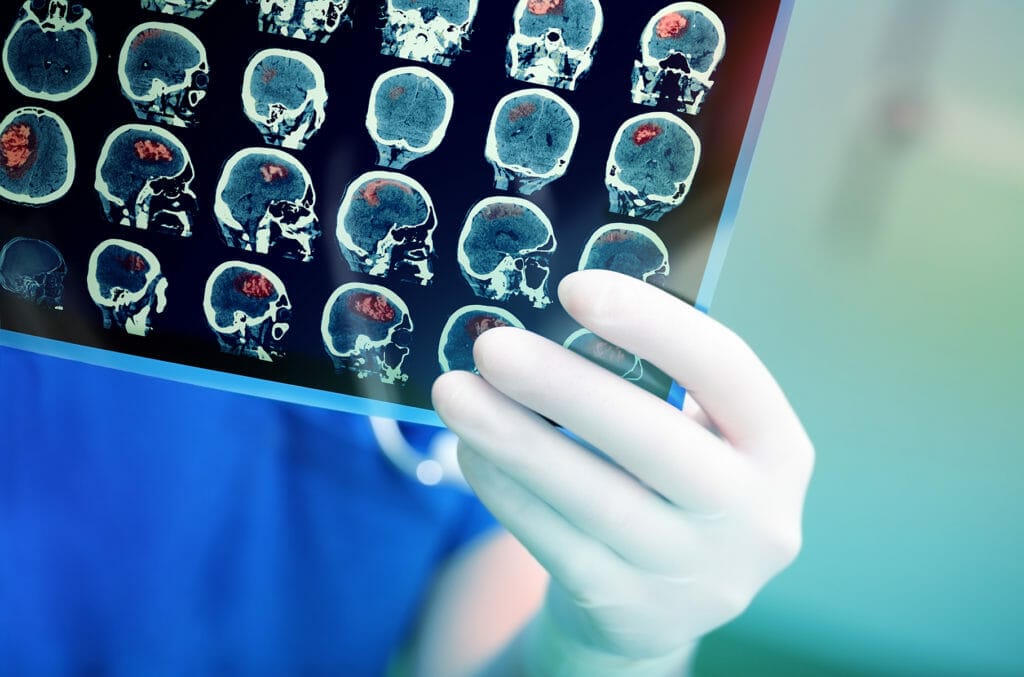Anaemia is a condition whereby there aren’t enough red blood cells (or haemoglobin) in the blood to carry an adequate amount of oxygen around the body. There are many different types/forms, treatments, causes and symptoms of anaemia, some of which we will look into a little further below…
Types of Anaemia
There are many different types of anaemia, the most common being Iron Deficiency Anaemia. Your body needs iron to produce haemoglobin for red blood cells; if your body has a shortage of iron this can lead to iron deficiency anaemia. This type of anaemia is most common in pregnant women but can also be caused by blood loss such as heavy menstrual bleeding and as a side effect of regular use of over-the-counter pain relief. Treatments for this type of anaemia include taking a high-quality iron supplement, dietary changes, procedures and sometimes surgery. Severe (and rare) cases of this type of anaemia may even require an intravenous line or blood transfusion.
Vitamin Deficiency Anaemia – As well as iron, your body needs other vital nutrients and vitamins such as vitamin B12. Vitamin B12 helps to keep our nerve and blood cells healthy, so a deficiency in this key vitamin can cause anaemia. Vitamin B12 also passes through different stages of absorption in the intestinal tract and this process can be disrupted by the immune system leading to pernicious anaemia – a type of autoimmune disease where the body attacks the factors that aid absorption of vitamin B12.
Anaemias associated with vitamin B12 deficiency (from whatever cause) do not require iron supplementation. Instead, a high-quality vitamin B12 supplement (a methyl and/or adenosylcobalamin form that is absorbed under the tongue) and folic acid supplement (in the reduced 5-MHTF form) to restore folate levels are recommended; a change in diet is also recommended for supporting vitamin B12 and folate levels in this type of anaemia.
Sickle Cell Anaemia – Sickle cell anaemia is a hereditary form of anaemia caused when there are abnormalities in the haemoglobin found in red blood cells within the body. The abnormalities within the haemoglobin cause distorted red blood cells which then cannot carry oxygen efficiently throughout the body. A bone marrow transplant (also known as a stem cell transplant) is the only potential cure for sickle cell anaemia. Other treatments may include forms of pain relief and/or a blood transfusion.
Haemolytic Anaemia – Haemolytic anaemia are formed when the body destroys red blood cells quicker than it can replace them. Treatments for these kinds of rare anaemia include blood transfusions, various types of medicines, surgery, lifestyle and dietary changes, a bone marrow/stem cell transplant and plasmapheresis (a procedure that removes antibodies from blood).
Other types of anaemia include, but are not limited to, anaemia of chronic disease, aplastic anaemia, anaemias associated with bone marrow disease, thalassemia and malarial anaemia.
Symptoms of Anaemia
The most common symptoms of anaemia due to poor red blood cell function include:
- Fatigue
- Dizziness/light-headedness
- Pale or yellowish skin
- Shortness of breath
- Weakness
- Chest pain
- Cold hands/feet
- Headache
Risk Factors
Several of the types of anaemia we’ve discussed are rare but vitamin B12 and iron deficiency can be quite common, especially in certain populations. These risk factors include, but are not limited to:
Diet – A diet that lacks essential vitamins including vitamin B12 and iron can put you at higher risk of developing different types of anaemia.
Intestinal Disorders – Intestinal disorders, such as Crohn’s disease, affect the absorption of nutrients within your body, making you more susceptible to anaemia.
Auto-immune diseases – pernicious anaemia which prevents absorption of adequate vitamin B12 through the intestinal tract has its origins in immune system disruption, as well as poor intestinal health.
Menstruation – Menstruation is a risk factor of anaemia as it causes the loss of red blood cells.
Pregnancy – Pregnancy is a risk factor of anaemia due to the increased amount of blood in the body. It is important to take a folic acid supplement during pregnancy to regulate your folate levels supporting the neural development of the foetus.
Family history – some forms of anaemia such as sickle cell, are hereditary. Having a family history of anaemia may put you at higher risk.
Age – those aged 65 and over are at a higher risk of developing anaemia.
To learn more about the different types of anaemia and how best to support healthy blood cell balance through diet and lifestyle, join Dr Elisabeth Philipps PhD BSc (Hons) BSc Nutr Med on our upcoming Nutrihub Webinar on Tuesday 22nd October 2019 at 12pm BST.

References
William C. Shiel Jr., F. (2019). 9 Sickle Cell Anaemia Symptoms, Inheritance, and Treatment. [online] MedicineNet. Available at: https://www.medicinenet.com/sickle_cell/article.htm [Accessed 6 Aug. 2019].
Nhsinform.scot. (2019). Vitamin B12 or folate deficiency anaemia symptoms and treatments. [online] Available at: https://www.nhsinform.scot/illnesses-and-conditions/nutritional/vitamin-b12-or-folate-deficiency-anaemia [Accessed 6 Aug. 2019].
Mayoclinic.org. (2019). Sickle cell anaemia – Diagnosis and treatment – Mayo Clinic. [online] Available at: https://www.mayoclinic.org/diseases-conditions/sickle-cell-anemia/diagnosis-treatment/drc-20355882 [Accessed 6 Aug. 2019].
Ods.od.nih.gov. (2019). Office of Dietary Supplements – Vitamin B12. [online] Available at: https://ods.od.nih.gov/factsheets/VitaminB12-Consumer/ [Accessed 6 Aug. 2019].
Nhlbi.nih.gov. (2019). Iron-Deficiency Anemia | National Heart, Lung, and Blood Institute (NHLBI). [online] Available at: https://www.nhlbi.nih.gov/health-topics/iron-deficiency-anemia [Accessed 6 Aug. 2019].
HOA – Hematology-Oncology Associates of CNY. (2019). How Is Hemolytic Anemia Treated?. [online] Available at: https://www.hoacny.com/patient-resources/blood-disorders/what-hemochromatosis/how-hemolytic-anemia-treated [Accessed 6 Aug. 2019].
Mayo Clinic. (2019). Anaemia – Symptoms and causes. [online] Available at: https://www.mayoclinic.org/diseases-conditions/anemia/symptoms-causes/syc-20351360 [Accessed 6 Aug. 2019].










